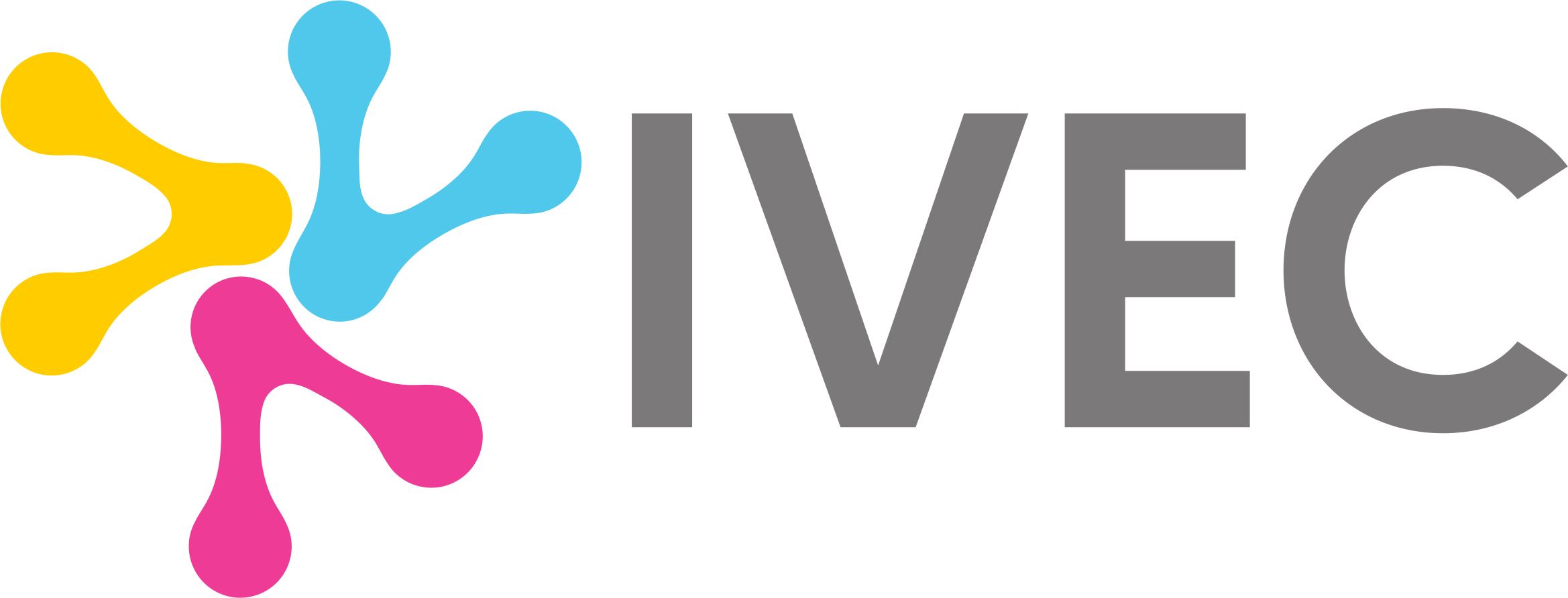October 21 - 24, 2024
Thank you to all who submitted proposals for IVEC 2024! We received a large number of proposals and the Review process is underway. Notification of acceptance will be sent by June 15th.
IVEC 2024 will be a fully virtual event, hosted by the IVEC Board of Directors. Reflecting input from the IVEC community, IVEC 2024 will model best virtual exchange practices with innovative formats, prioritizing engagement among attendees through a combination of asynchronous and synchronous opportunities that diverge from traditional presentations. Synchronous sessions will be held during varying times of day to maximize participation from different time zones.
We invite proposal submissions from individuals, institutions, and organizations around the world focused on virtual exchange. We welcome proposals from virtual exchange practitioners (instructors, staff, and administrators) as well as students who have participated in virtual exchange.
The primary language of the conference is English and proposals should be submitted in English. However, in alignment with the ethos of the IVEC community, we encourage the inclusive and innovative use of multiple languages within conference sessions. Please note that interpretation/translation services will not be provided. All submissions will undergo a double blind peer review process. Authors will be notified in time to register by the early registration deadline.
2024 Conference Tracks
Submissions are welcome in the following tracks. The descriptions below indicate some of the types of topics that may be of interest within each track, but other topics are welcome.
- VE in Action: Case studies and practice reports, explorations of the use of innovative pedagogies and technologies, and accounts of student experiences.
- Impact through Research: Reports on research evaluating the impact and outcomes of virtual exchange projects, as well as the field more broadly. Proposals must clearly articulate the research questions and methodology and present concrete, completed results/analysis. Research conducted across multiple projects and/or with multiple iterations is strongly encouraged.
- VE for Global Change: Reports on intentional efforts to promote social justice and overcome equity and inclusion challenges within virtual exchange projects.
- Strategy and Policy: Virtual exchange strategy and policy at departmental, school, faculty, institutional and system levels.
- Shaping the Field: Defining virtual exchange, universal standards for professional development, assessment, privacy policies, etc.
Review Criteria
We encourage proposals that are aligned with the following criteria:.
- Alignment with a Conference Track: See specific criteria above
- Original: the proposal explores a new idea, project, or issue; discusses new research; or presents new ways of considering existing information
- Relevant: the proposal has high potential to attract conference attendees by addressing the needs of the community; raises issues important to virtual exchange and engagement; and its contents can be broadly disseminated and understood
- Clear: the intended outcomes of the session are easily understood
- Engaging: An indication of how your session will engage participants
- Well Researched: claims are backed by sufficient data; claims draw upon relevant literature and/or multiple perspectives; and limitations are described honestly (research papers only)
- Scope: applicable to a broad range of practitioners at various levels (facilitated discussions only)
Session Formats
Synchronous Workshops (90 minutes)
Workshops are action-oriented, hands-on sessions intended to train and actively engage participants. Workshop proposals must describe the intended content, goals of the session, and how virtual technology will be used to enhance/maximize engagement through hands-on components of the session. (max. 300 words)
Synchronous Facilitated Discussions (60 minutes)
These sessions should propose a topic or challenge that is relevant to the wider field of virtual exchange and outline a set of thought-provoking questions and/or breakout activities in order to guide an interactive conversation with attendees. Proposals can include roles for up to 5 facilitators but should focus on engaging participants rather than developing a panel of presenters. Proposals must describe the topic or challenge, explain the framework for drawing out discussion and involving groups of up to 50 participants in active conversation. Supplemental resources informing the discussion, such as handouts or reference material, are welcome and may be listed in the proposal. (max. 300 words)
Asynchronous Flash Presentations
Flash Presentations are a set of concisely prepared, unnarrated slides, infographics, posters, or other visual materials that will be shared with participants asynchronously. Slide decks will be limited to 10 slides (excluding a cover slide, references, and contact information). Proposals should include an outline of the presentation topic and content shared, plus 2 questions/discussion prompts that the author(s) would like to pose to attendees to spark further conversation on the presentation topic. Authors should also indicate up to 3 specific key words/themes that their session will explore. (max. 300 words)
Synchronous Invited Roundtables A selection of accepted Asynchronous Flash Presentations will be grouped according to common themes or creative interdisciplinary connections to generate further discussion. Authors may be invited to facilitate these synchronous roundtable sessions during the conference. No submission is needed for roundtables. This is an innovative format aimed at maximizing engagement of participants. |
Networking Events (60 minutes)
These sessions are where the fun happens! We invite you to be creative in your proposal to facilitate a synchronous or asynchronous networking activity/event. Consider proposing a game, a meal time activity, a virtual tour of your local environment, etc. Proposals must describe the activity or event, explain the approach to creating engagement, and be able to involve groups of up to 50 participants. (max. 300 words)
In pursuit of being inclusive of varied voices, participants can present in up to 3 accepted sessions among: workshops, synchronous facilitated discussions, and flash presentations. The limit does not apply to networking events and synchronous invited roundtables.
Download and read our Call for Proposals guidelines for further information on formats, review criteria, and other relevant information for your submission.
